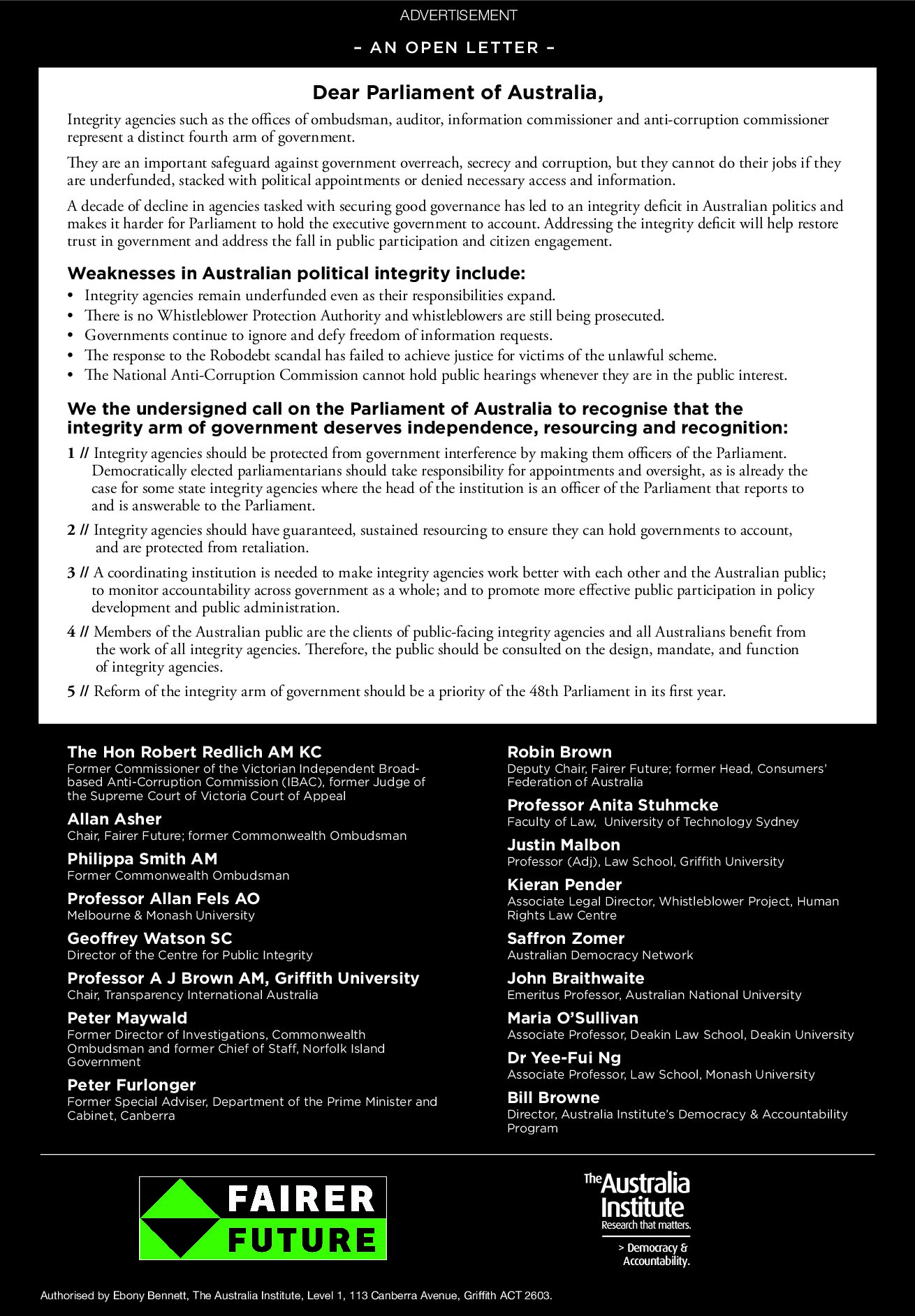Integrity at home shapes global outcomes – Polly Hemming | Climate Integrity Summit 2025

Despite frequent claims that Australia is ‘too small to make a difference,’ historical evidence demonstrates our nation’s outsized role in influencing international norms and policies.
Australia’s domestic policies across climate, human rights, environmental protection, and democratic institutions create ripple effects that shape international responses to global challenges.
With the 2025 federal election approaching, this timely discussion underscores how Australia’s domestic choices have far-reaching implications for international cooperation on climate change, ecosystem protection, and human security.
Far from being too small to matter, the integrity of Australia’s actions at home fundamentally shape our capacity for meaningful leadership abroad.
Presented by Polly Hemming, Climate & Energy Director, The Australia Institute
Between the Lines Newsletter
The biggest stories and the best analysis from the team at the Australia Institute, delivered to your inbox every fortnight.
You might also like
We need political courage, not caution | Polly Hemming
When it comes to solving the biggest national problems, a bit of courage leaves political caution for dead. Now’s not the time for politeness.
Analysis: Will 2025 be a good or bad year for women workers in Australia?
In 2024 we saw some welcome developments for working women, led by government reforms. Benefits from these changes will continue in 2025. However, this year, technological, social and political changes may challenge working women’s economic security and threaten progress towards gender equality at work Here’s our list of five areas we think will impact on
Open letter calls on newly elected Parliament to introduce Whistleblower Protection Authority, sustained funding for integrity agencies to protect from government pressure.
Integrity experts, including former judges, ombudsmen and leading academics, have signed an open letter, coordinated by The Australia Institute and Fairer Future and published today in The Canberra Times, calling on the newly elected Parliament of Australia to address weaknesses in Australian political integrity. The open letter warns that a decade of decline in agencies


